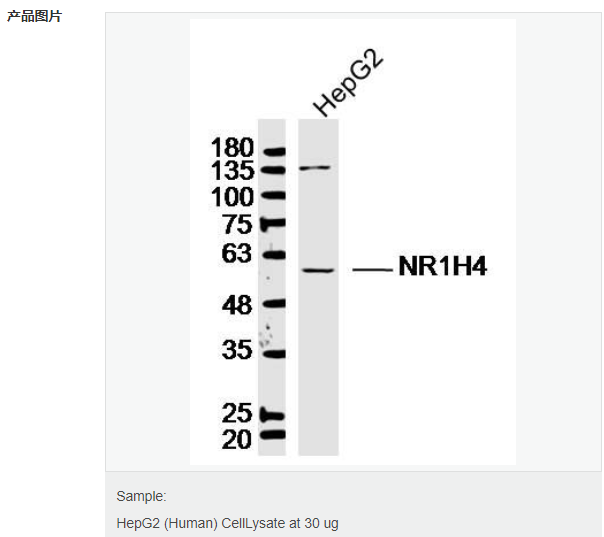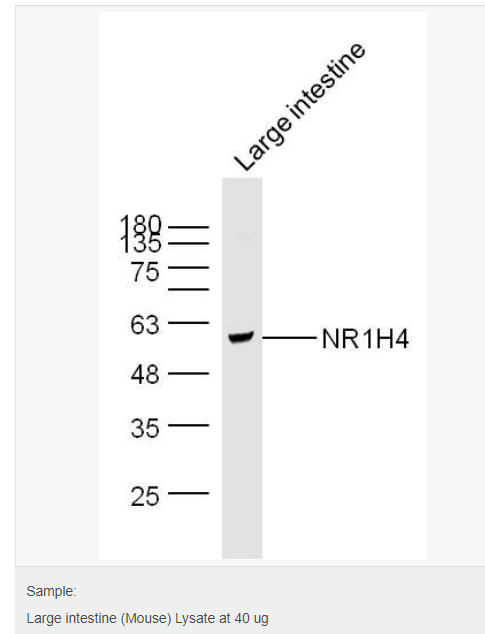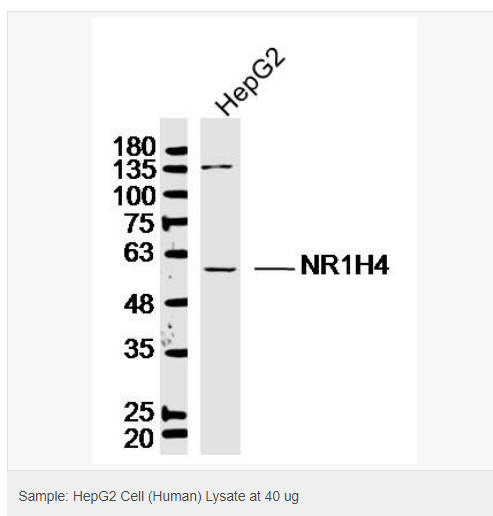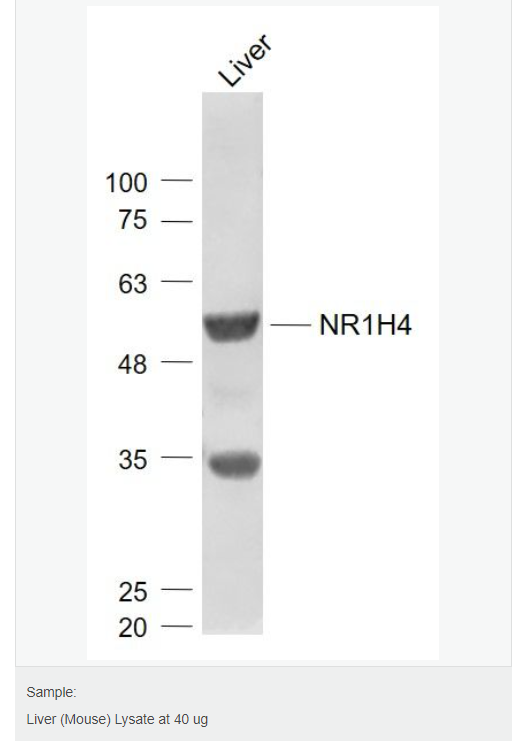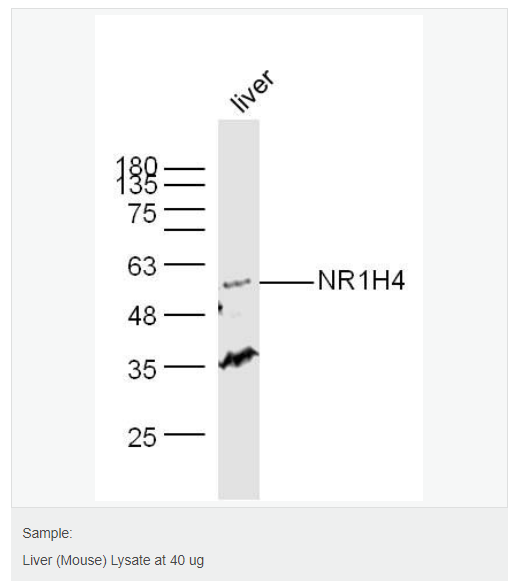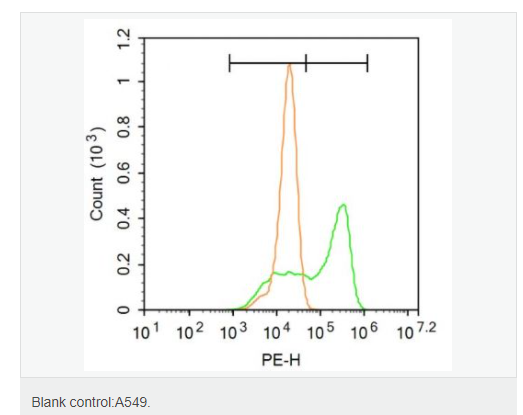
货号
产品规格
售价
备注
BN42192R-50ul
50ul
¥1486.00
交叉反应:Mouse,Human(predicted:Sheep,Horse,Cow,Pig,Dog,Rat) 推荐应用:WB,IHC-P,IHC-F,ICC,IF,Flow-Cyt,ELISA
BN42192R-100ul
100ul
¥2360.00
交叉反应:Mouse,Human(predicted:Sheep,Horse,Cow,Pig,Dog,Rat) 推荐应用:WB,IHC-P,IHC-F,ICC,IF,Flow-Cyt,ELISA
BN42192R-200ul
200ul
¥3490.00
交叉反应:Mouse,Human(predicted:Sheep,Horse,Cow,Pig,Dog,Rat) 推荐应用:WB,IHC-P,IHC-F,ICC,IF,Flow-Cyt,ELISA
| 英文名称 | NR1H4 |
| 中文名称 | 胆汁酸受体抗体 |
| 别 名 | Bile Acid Receptor NR1H4; BAR; FXR; Farnesoid X activated receptor; Farnesoid X receptor; Farnesoid X-activated receptor; Farnesol receptor HRR 1; Farnesol receptor HRR-1; Farnesol receptor HRR1; FXR; HRR 1; HRR1;NR1H4_HUMAN; Nuclear receptor subfamily 1 group H member 4; Retinoid X receptor interacting protein 14; Retinoid X receptor-interacting protein 14; RIP 14; RIP14; RXR interacting protein 14; RXR-interacting protein 14. |
| 研究领域 | 肿瘤 细胞生物 信号转导 新陈代谢 表观遗传学 |
| 抗体来源 | Rabbit |
| 克隆类型 | Polyclonal |
| 交叉反应 | Human, Mouse, (predicted: Rat, Dog, Pig, Cow, Horse, Sheep, ) |
| 产品应用 | WB=1:500-2000 ELISA=1:5000-10000 IHC-P=1:100-500 IHC-F=1:100-500 Flow-Cyt=3ug/test ICC=1:100-500 IF=1:100-500 (石蜡切片需做抗原修复) not yet tested in other applications. optimal dilutions/concentrations should be determined by the end user. |
| 分 子 量 | 56kDa |
| 细胞定位 | 细胞核 |
| 性 状 | Liquid |
| 浓 度 | 1mg/ml |
| 免 疫 原 | KLH conjugated synthetic peptide derived from human FXR/Bile Acid Receptor NR1H4:175-280/486 |
| 亚 型 | IgG |
| 纯化方法 | affinity purified by Protein A |
| 储 存 液 | 0.01M TBS(pH7.4) with 1% BSA, 0.03% Proclin300 and 50% Glycerol. |
| 保存条件 | Shipped at 4℃. Store at -20 °C for one year. Avoid repeated freeze/thaw cycles. |
| PubMed | PubMed |
| 产品介绍 | The steroid receptor superfamily acts through direct association with DNA sequences known as hormone response elements (HREs) and binds DNA as either homo- or heterodimers. The promiscuous mediator of heterodimerization, RXR, is the receptor for 9-cis retinoic acid, and dimerizes with VDR, TR, PPAR, and several novel receptors including LXR (also referred to as RLD-1) and FXR. FXR and LXR fall into a category of proteins termed “orphan receptors” because of their lack of a defined function, and in the case of LXR, the lack of a defined ligand. FXR has been shown to bind a class of lipid molecules called farnesoids. LXR/RXR heterodimers have highest affinity for DR-4 DNA elements while FXR/RXR heterodimers bind IR-1 elements. Both LXR/RXR and FXR/RXR heterodimers retain their responsiveness to 9-cis retinoic acid. Function: Ligand-activated transcription factor. Receptor for bile acids such as chenodeoxycholic acid, lithocholic acid and deoxycholic acid. Represses the transcription of the cholesterol 7-alpha-hydroxylase gene (CYP7A1) through the induction of NR0B2 or FGF19 expression, via two distinct mechanisms. Activates the intestinal bile acid-binding protein (IBABP). Activates the transcription of bile salt export pump ABCB11 by directly recruiting histone methyltransferase CARM1 to this locus. Subunit: eterodimer of NR1H4 and RXR. After activation by agonist binding, interacts with a coactivator, NCOA1 or NCOA2 (By similarity). Interacts with CARM1 and SMARD1. Subcellular Location: Nucleus. Post-translational modifications: Methylation may increase transactivation of target genes. Similarity: Belongs to the nuclear hormone receptor family. NR1 subfamily. Contains 1 nuclear receptor DNA-binding domain. SWISS: Q96RI1 Gene ID: 9971 Database links: Entrez Gene: 9971 Human Entrez Gene: 20186 Mouse Omim: 603826 Human SwissProt: Q96RI1 Human SwissProt: Q3V1T8 Mouse SwissProt: Q60641 Mouse Unigene: 282735 Human Unigene: 3095 Mouse Unigene: 42943 Rat Important Note: This product as supplied is intended for research use only, not for use in human, therapeutic or diagnostic applications |
